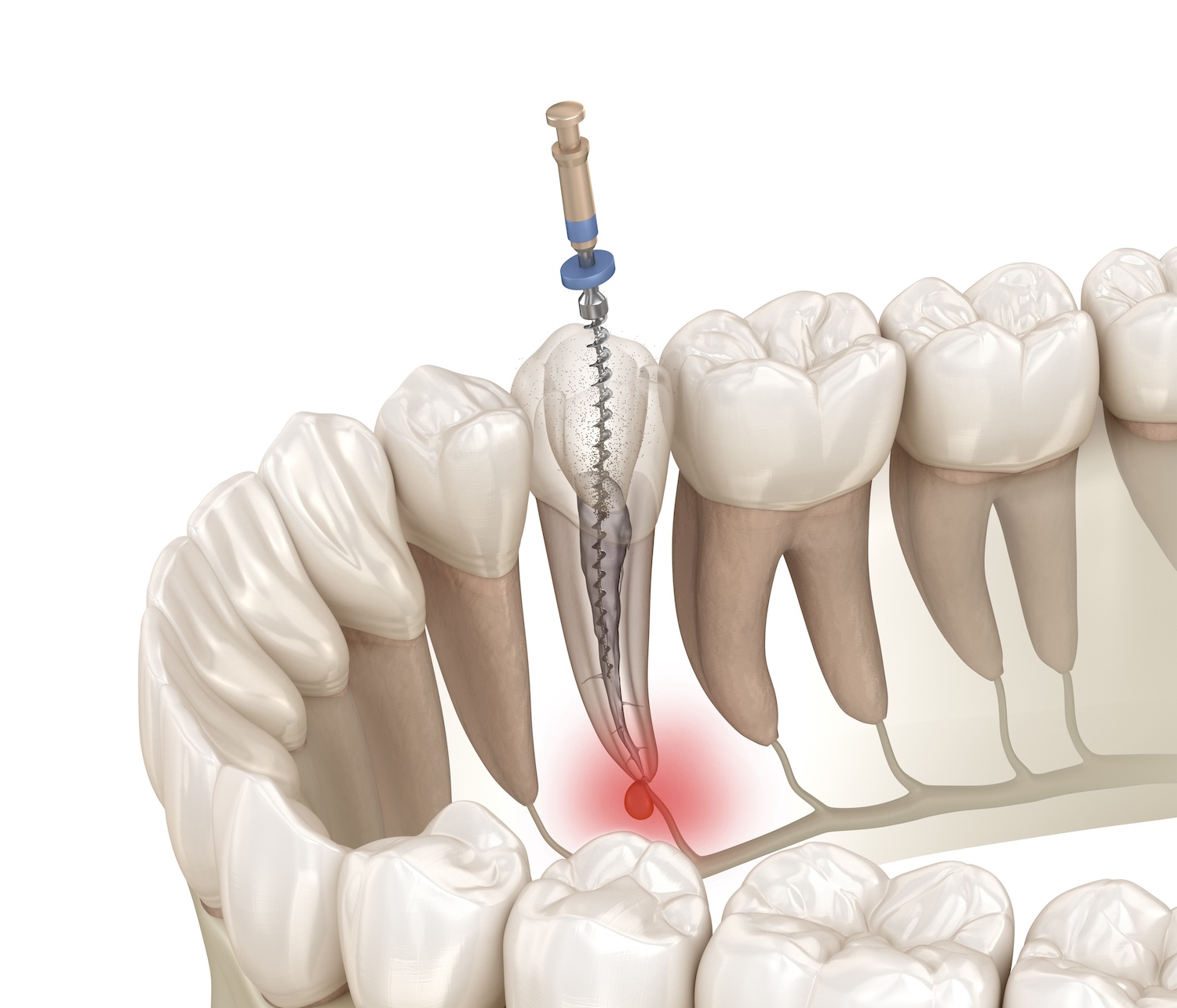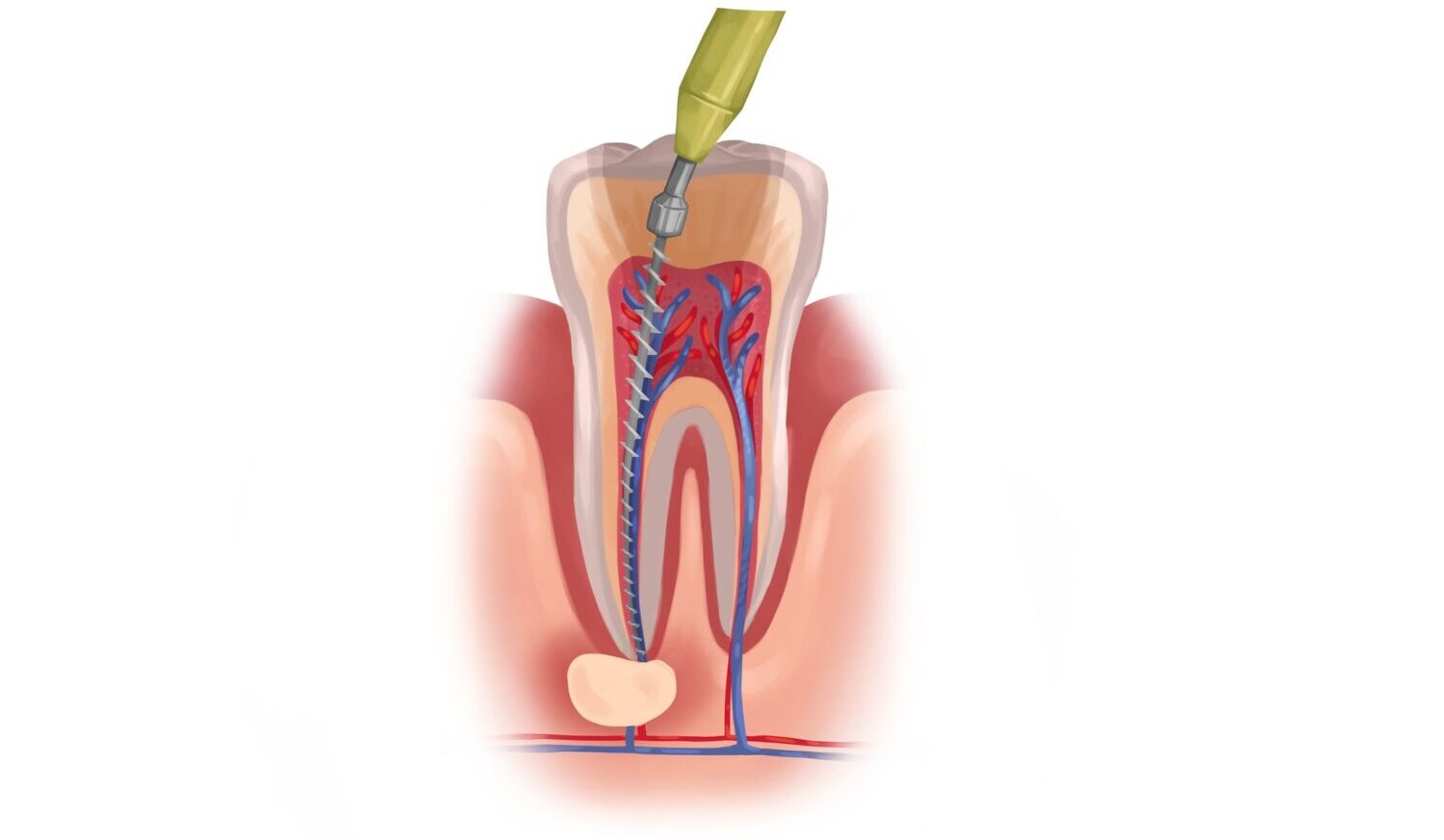In this post, learn why root canals are often the best way to save a tooth and relieve infection-related pain.
What is a Root Canal?

When you hear the words “root canal,” it’s natural to feel a bit anxious. However, this common procedure is actually designed to relieve pain, not cause it. At CarolinasDentist, with 13 convenient locations across North Carolina, our team of skilled dentists is here to ensure your experience is as comfortable as possible. Let’s break down what a root canal is and why it might be necessary.
What Exactly is a Root Canal?
A root canal is a dental procedure used to treat infection or damage within the tooth’s pulp. The pulp is the soft tissue inside the tooth that contains nerves, blood vessels, and connective tissue. When the pulp becomes infected or inflamed, it can cause severe pain, sensitivity, and even lead to an abscess if left untreated. A root canal is performed to remove the infected tissue, clean the inside of the tooth, and seal it to prevent future issues.
Why Would You Need a Root Canal?
There are several reasons why root canal therapy might be necessary:
Deep Decay: If a cavity is left untreated, it can eventually reach the pulp, leading to infection.
Cracked or Chipped Tooth: A crack or chip can expose the pulp to bacteria, resulting in inflammation or infection.
Repeated Dental Procedures: Multiple procedures on the same tooth can irritate the pulp and increase the risk of infection.
Injury: Even if a tooth injury doesn’t cause an immediate crack, it can damage the pulp over time.
What Happens During a Root Canal?
The idea of a root canal might sound intimidating, but it’s actually a straightforward procedure:
Numbing the Area: The dentist will first numb the area around the affected tooth to ensure you feel comfortable throughout the procedure.
Removing the Infected Pulp: A small opening is made in the top of the tooth to access and remove the infected or damaged pulp.
Cleaning and Disinfecting: The inside of the tooth is then thoroughly cleaned and disinfected to remove any remaining bacteria.
Filling and Sealing: After cleaning, the tooth is filled with a rubber-like material called gutta-percha and then sealed to prevent reinfection.
Restoration: In many cases, a crown is placed on the tooth after endodontic treatment to restore its strength and function.
Is a Root Canal Painful?
One of the biggest myths about root canals is that they’re extremely painful. In reality, the procedure is designed to relieve the pain caused by an infected tooth. Thanks to modern techniques and anesthesia, most patients report that a root canal feels similar to getting a regular filling.
Recovery and Aftercare
After treatment, it’s normal to experience some mild discomfort for a few days. But, this can usually be managed with over-the-counter pain relievers. It’s important to follow your dentist’s aftercare instructions. These may include eating soft foods and avoiding chewing with the treated tooth until it’s fully restored.
Trust CarolinasDentist for Your Endodontic Needs
At CarolinasDentist, our group practice spans 13 locations across North Carolina. This makes it easy for you to access high-quality dental care no matter where you are in the state! Our experienced team is committed to providing compassionate, patient-centered care, ensuring that your root canal procedure is as smooth and stress-free as possible.
If you’re experiencing tooth pain or have been told you might need a root canal, don’t hesitate to reach out to us. With a focus on comfort and care, CarolinasDentist is here to help you preserve your natural smile and maintain your oral health.
Schedule an appointment today at any of our North Carolina locations to learn more about root canals and how we can help alleviate your dental concerns. Your health and comfort are our top priorities!









